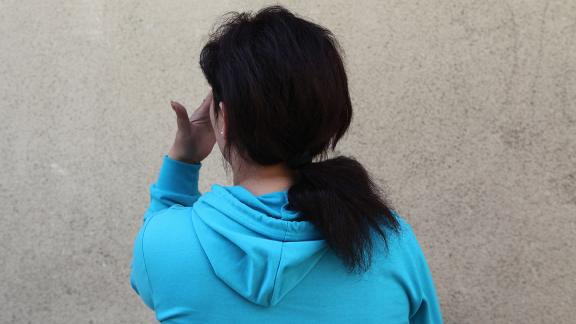The Kazakhstan Association on Sexual and Reproductive Health (KMPA) carried out research to produce a national “HIV Prevention Report Card for Sex Workers”. In this blog, Galina Grebennikova, KMPA’s Executive Director, and Karina Sagitova, a KMPA volunteer, explain why Kazakhstan needs a more positive discourse on sexuality, and on HIV.
---
When we carried out this research, we made a number of discoveries relating to the violence, stigma and discrimination experienced by sex workers, as well as to their limited access to HIV prevention services.
By way of background, sex-related topics were forbidden during the socialist regime in Kazakhstan, as it was said that there was no sex in the USSR! And in spite of all the efforts made in the last twenty years by NGOs and international organisations, sexuality remains an extremely sensitive issue here. It has always been associated with shame, and is still difficult to discuss, even with young people. This means that society has quite a negative and contemptuous attitude to sex work and sex workers. Politicians and decision-makers prefer to avoid any debate related to sexuality, as they seem to find the topic embarrassing. They take the line that there is no sex in Kazakhstan, and so there are no sex workers either. Sex workers are not represented as a group in any legal acts or documents. It seems like they don’t exist, even though mass media regularly features police raids and portrays female sex workers very negatively. Lesbian, gay, bisexual and transgender (LGBT) issues are never raised in the media or by politicians, especially concerning sex work.
Nevertheless, there are 19,600 female sex workers across the country, some of them immigrants from neighboring countries like Uzbekistan and Kyrgyzstan. Sex work is related to a high risk of violence from the police and from clients. This context, as the “Report Card” shows, makes sex workers highly vulnerable. They face police indifference, threats or further abuse if they report violence, verbal abuse, sexual exploitation and torture including rape and multiple assaults. Public perception associates sex work with slavery, which is unfortunately true in many cases. Given all this, sex workers can’t easily go to places where services are available when they want to, for example AIDS centres or providers of sexual and reproductive health services.
The broader population has a negative image of sex workers as “fallen women” against whom violence is justified. Economic development in Kazakhstan is not matched by cultural development in terms of sex and sexual behavior. The government needs to do the following: work on creating a better image of sexuality by developing a proper comprehensive sexual education curriculum for schools; use public advertisements and media to promote sexual literacy and prevent violence; and in the future, move towards legalising sex work. This can improve society’s attitude to sex workers. Moreover, sexuality education can help to increase the birth rate, which is a government goal.
People living with HIV in Kazakhstan still face a lot of stigma and discrimination. At the end of the 90s, there was a massive and frightening information campaign which described AIDS as the “plague of the 21st century”. The message was that there was nothing worse than having HIV, and that it inevitably leads to death. On top of that, AIDS was only associated with drug users and never with ordinary people. In general, people living with HIV were considered to be dangerous. This information has never been updated, for example to talk about the existence of antiretroviral therapy, about the fact that people can live with HIV, and about the possibility for women to have healthy children. So the public, including young people, still believe that you can get HIV from having a manicure at the beauty salon, or getting needled by a “terrorist” in public places.
These facts cause a lot of fear and prevent people from taking HIV tests and visiting AIDS centres. Sex workers are no exception. Even medical staff can be a powerful source of stigma and discrimination due to their own low levels of awareness. They also need to receive more updated information and training on communicating with the population most at risk.
Kazakhstan needs a new communication strategy on HIV which makes it clear that people can live with it, and that there is a growing trend according to official statistics for ordinary educated people, especially women, to have HIV.
We hope that politicians and decision-makers wake up and begin to see the reality, even if it doesn’t meet their expectations and perception of Kazakhstan as a well developed nation. Above all, we hope that one day people will matter more than money, figures and status, and that our state will become more constitutional and democratic.
---
The “HIV Prevention Report Card for Sex Workers” in Kazakhstan is one in a series produced by IPPF and the United Nations Population Fund (UNFPA) in collaboration with the Sex Workers’ rights Advocacy Network (SWAN). You can download the Report Card for Kazakhstan, as well as Report Cards for Kyrgyzstan, Russia and Tajikistan, here.
when
country
Kazakhstan
Related Member Association
Kazakhstan Association on Sexual and Reproductive Health (KMPA)









